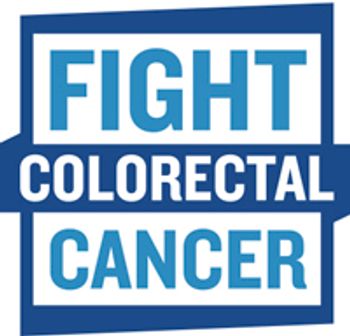
A recent study found that out-of-pocket costs could be a barrier to timely initiation of TKI therapy among individuals with Medicare coverage.

A recent study found that out-of-pocket costs could be a barrier to timely initiation of TKI therapy among individuals with Medicare coverage.

On March 21, at 9 PM EST, the #CureConnect tweetchat will be focusing on screening and prevention. Sharyn Worrall, Patient Education Manager for FightCRC will be comoderating on this topic, which is especially important for colorectal cancer.

A recent study evaluated how muscle mass can be used to predict which patients will experience toxicities from chemotherapy and to what extent.

A recent study found that neurofeedback brain training could be effective in reducing chemotherapy-induced peripheral neuropathy (CIPN).

According to a recent survey, the main causes for a lack of HPV vaccine uptake are a lack of knowledge and a failure by healthcare providers to recommend it.

The FDA has granted accelerated approval to pembrolizumab for treatment of patients with hodgkin lymphoma.

The PARP inhibitor olaparib improved PFS when compared to standard chemotherapy in patients with BRCA-positive breast cancer, according to findings from the phase III OLYMPIAD trial.

The benfits of imatinib persisted over time and long-term administration of the drug was not assicationed with unacceptable toxic effects in patients with chronic myeloid leukemia (CML).

The FDA has granted approval to ribociclib (Kisqali) for firstline treatment of HR+/HER2- breast cancer.

According to findings presented at the 2017 Miami Breast Cancer Conference, combination eribulin and pembrolizumab showed promising results for patients with metastatic triple-negative breast cancer (TNBC).

Stereotactic body radiation therapy (SBRT) is highly effective, and potentially curable for early-stage lung cancer, though not many physicians use the therapy, says expert Molly Freeman, CNP.

After chemotherapy proved unsuccessful, one patient entered a clinical trial of a new combination for immunotherapy for her ovarian cancer.

For patients who may be unable to afford access to scalp cooling systems for chemotherapy-induced hair loss, the nonprofit organization Hair to Stay can help with their grants.

Alix Beaupierre, RN, BSN, OCN, transplant nurse coordinator at Moffitt Cancer Center, discusses the patient education program she led for a CAR T-cell therapy clinical trial.

Adding to ublituximab to ibruitinib has significantly improved reponse rates compared to ibrutinib alone for patients with previously treated high-risk chronic lymphocytic leukemia (CLL).

Denosumab demonstrated noninferiority to zoledronic acid at delaying the time to the first skeletal-related event (SRE) in patients with multiple myeloma.

A recent study found that online cognitive behavioral therapy (CBT) intervention led to an improvement in sexual functioning for patients with breast cancer experiencing adverse effects.

A multidisciplinary team went to Botswana to bring more effective treatment to patients with cervical cancer.

A poor diet earlier in life could be linked to a greatest risk of breast cancer before menopause.

A recent study has found that the rates of colorectal cancer are rising in young adults.

The coping mechanism of mindfulness can be an effective technique in complementary or integrative therapies for patients with cancer, such as meditation, yoga, and reiki.

Adding pertuzumab to trastuzumab and chemotherapy reduced the risk of recurrence of invasive disease or death in patients with HER2-positive early breast cancer.

The conditioning regimen that takes place before an allogenic hematopoietic stem cell transplant (HSCT) can improve outcomes by reducing risk of relapse.

Breast cancer expert Carey Anders discusses treatment for breast cancer patients with brain metastases.

The FDA has granted approval for telotristat ethyl in treating carcinoid syndrome diarrhea in patients with neuroendocrine tumors (NETs).

A recent study aimed to evaluate whether patients were willing and able to report their adverse events while on a clinical trial.


When treating patients with CAR T-cell therapy, it is important that nurses are involved in the patient education and care coordination, so patients can be fully prepared for potential adverse events.

For patients with non-small cell lung cancer (NSCLC) receiving pembrolizumab, long-term survival rates could reach 25%.

Nurse and 2016 MPN Hero Erin Blackwell discusses MPNs and personalized care for patients.